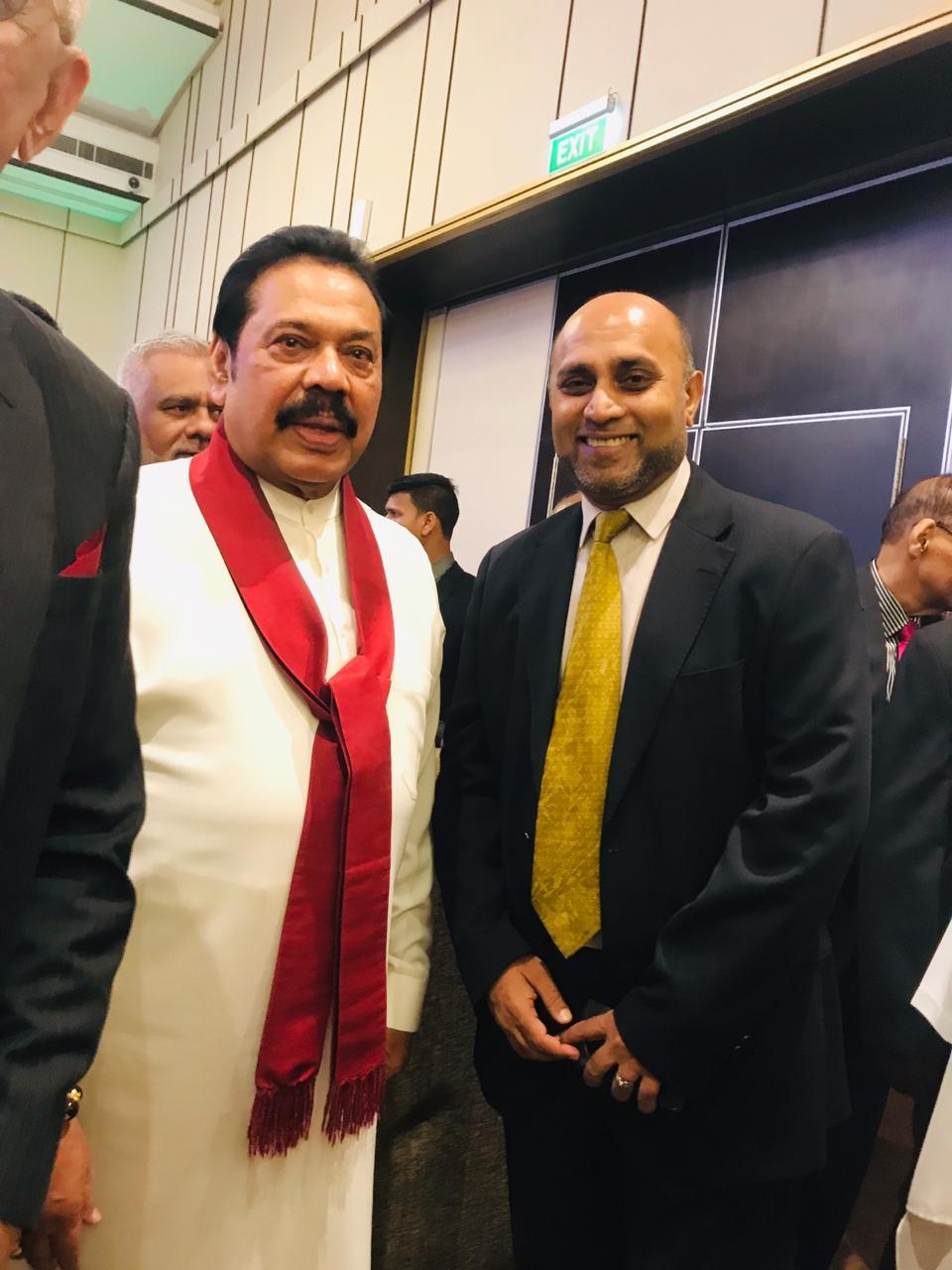-By Political Correspondent

(Lanka-e-News -29.March.2025, 11.00 PM) Colombo’s political theater is no stranger to drama, but the upcoming mayoral election has taken an intriguing turn. At the heart of the contest are two formidable candidates, both vying for the city’s highest civic office while championing the interests of Colombo’s Muslim community. Yet, beneath the surface of campaign promises and electoral grandstanding, a deeper question looms—who truly represents the Muslim electorate, and does heritage play a role in defining political legitimacy?
Enter Hassan Alaldeen and Dr. Ruwais Hanifa, two candidates with distinctly different political journeys but strikingly similar ambitions. While both claim to be the rightful voice of the Muslim community, their backgrounds, affiliations, and past political maneuvering paint a far more complex picture.
Hassan Alaldeen, a name that has recently gained traction in Colombo’s political circles, is seen as a candidate with a foot in multiple camps. His lineage is firmly rooted in Sri Lankan soil, with political ancestry stretching back to Kalutara and Kandy. Unlike many others in the fray, his genealogy is undisputed—his roots do not trace back to the Indian subcontinent in recent history, which, in the nuanced world of Colombo’s ethnic politics, carries symbolic weight.
However, Alaldeen’s political affiliations raise eyebrows. His association with the Sarvajana Balaya Party, a political entity with a history of aligning with nationalist factions, has created a paradox. The party’s anti-Muslim rhetoric during Gotabaya Rajapaksa’s presidential campaign did little to endear it to the very community Alaldeen now seeks to represent. How does one reconcile a pro-Muslim mayoral bid with a past association to a political movement that was, at best, indifferent and, at worst, antagonistic toward Muslim interests?
Further complicating matters is his dalliance with Rishad Bathiudeen, a politician whose career has oscillated between power and scandal, and his visible presence alongside Sajith Premadasa in 2019. While political pragmatism is not a crime, Alaldeen’s affiliations suggest a flexible ideology—one that raises the question: Is he truly a champion of the Muslim cause, or merely a savvy politician who understands that Colombo’s Muslim vote is an asset worth capitalizing on?
Then there is Dr. Ruwais Hanifa, a candidate who steps onto the stage armed with legacy and lineage—though, for some, the latter remains a point of contention. Hanifa’s political narrative leans heavily on the name of his grandfather, M.H. Mohammed, a former Speaker and Minister whose tenure, while influential, was not without controversy.
M.H. Mohammed’s time in public office was marred by allegations of corruption, particularly in the administration of the Hajj pilgrimage. Quotas were allegedly sold, agents allegedly profited, and the shadow of mismanagement loomed large over his tenure. For many in the electorate, Hanifa’s claim to political credibility is as much a burden as it is a boost—does a family name grant legitimacy, or does it serve as a reminder of past misdeeds?
Adding to the intrigue is the matter of Hanifa’s origins. In a city where ethnic identities play a crucial role in voter perception, whispers regarding his Indian-Muslim lineage have gained momentum. While Colombo has long been a melting pot of cultures, and Sri Lanka itself has deep historical ties with South India, the narrative of “insider versus outsider” remains potent. The question of whether Hanifa’s forefathers migrated from India—versus being of Sri Lankan descent—has been raised in hushed tones, though in an era of global citizenship, does it truly matter?
For Colombo’s Muslim electorate, the choice is far from straightforward. On one hand, Hassan Alaldeen offers a rooted Sri Lankan identity but carries political baggage that does not sit well with a section of Muslim voters. On the other, Dr. Ruwais Hanifa presents himself as the torchbearer of a legacy but remains shadowed by questions of both lineage and past political associations.
The larger question, however, extends beyond these two candidates—how does Colombo’s Muslim electorate perceive its own political representation? For years, the Muslim vote has been both courted and exploited, a strategic pawn in broader national politics. Yet, time and again, promises made to the community have dissolved in the face of political expediency.
Does Colombo’s Muslim electorate remain loyal to old power structures and familiar surnames, or does it seek fresh leadership untethered to past controversies? And more crucially, does the community prioritize identity over policy, or will governance and vision take precedence over ethnic narratives?
In many ways, the Hassan Alaldeen vs. Dr. Ruwais Hanifa contest is a microcosm of Sri Lanka’s broader political landscape. It is a battle not just for a mayoral seat, but for the soul of Muslim political representation in Colombo.
If Alaldeen’s challenge lies in navigating the contradictions of his past political affiliations while convincing the electorate of his commitment to Muslim interests, Hanifa’s task is to rise above the baggage of legacy politics and present himself as a candidate of substance rather than surname.
The outcome of this election will serve as a barometer of Muslim political sentiment in Colombo. Will voters choose a candidate based on identity, or will they demand a vision for the city that transcends ethnic politics? Will they settle for familiar names, or will they challenge candidates to deliver beyond rhetoric?
One thing is certain: Colombo’s mayoral election is not just about who wins, but about what that victory signifies for the future of Muslim political agency in Sri Lanka.
The ballots may soon be cast, but the real question remains—will Colombo’s Muslims vote with their hearts, their history, or their hopes for a better tomorrow?
-By Political Correspondent
---------------------------
by (2025-03-29 19:49:19)
Leave a Reply